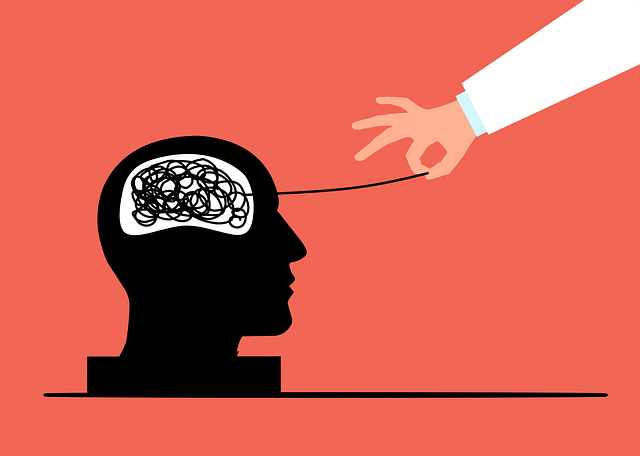Lafayette Anxiety Therapy tackles the complex challenge of mental illness diagnosis by combining traditional methods with innovative digital tools and holistic practices. They offer personalized treatment plans, mindfulness meditations, and community outreach to reduce stigma and improve access to care. Through educational initiatives like journaling exercises and a podcast series, they empower individuals to take charge of their mental wellness. Their advanced questionnaires and streamlined evaluations, coupled with compassion cultivation and self-care techniques, lead to more precise diagnoses and effective management of anxiety disorders and other mental health conditions. Early intervention through Lafayette Anxiety Therapy's programs promotes resilience and better mental health outcomes by normalizing conversations about emotional well-being.
Mental illness diagnosis accuracy has long been a subject of concern, with many challenges hindering effective identification. This article explores efforts to enhance diagnosis reliability, focusing on strategies that promise significant progress. We delve into the complexities of mental health assessment, introducing innovative approaches like Lafayette Anxiety Therapy. Additionally, we examine advancements in diagnostic tools and early intervention systems, highlighting their potential to revolutionize care. By addressing these areas, we aim to improve outcomes and provide better support for those navigating mental illness.
- Understanding the Challenges of Mental Illness Diagnosis
- Lafayette Anxiety Therapy: A Novel Approach
- Enhancing Diagnostic Tools and Techniques
- Promoting Early Intervention and Support Systems
Understanding the Challenges of Mental Illness Diagnosis

Diagnosing mental illnesses accurately can be a complex and challenging task due to their diverse nature and often subtle symptoms. The human mind is intricate, and conditions like anxiety disorders, depression, or bipolar disorder may manifest differently in each individual. What presents as overwhelming anxiety for one person could be a manageable stress response for another. This complexity necessitates a nuanced approach to assessment and treatment, such as that offered by Lafayette Anxiety Therapy.
Professionals in the field face the added hurdle of stigma surrounding mental health, which can lead to underreporting or misdiagnosis. Many individuals are hesitant to seek help, which may result in delayed treatment or alternative self-care practices being adopted instead. To combat this, a multi-faceted strategy is required, including educational initiatives like Mental Wellness Journaling Exercise Guidance and Mindfulness Meditation, as well as community outreach programs that foster open dialogue and reduce the social barriers to accessing mental health services.
Lafayette Anxiety Therapy: A Novel Approach

Lafayette Anxiety Therapy is a novel approach that combines advanced therapeutic techniques with innovative technology to enhance mental wellness. This method goes beyond traditional therapy sessions by integrating mindfulness meditation practices and custom-tailored anxiety relief strategies. Through a comprehensive online platform, individuals can access personalized treatment plans, interactive Mindfulness Meditation exercises, and regular check-ins with certified therapists, all designed to improve diagnosis accuracy and overall mental health outcomes.
The program’s success lies in its ability to provide scalable and accessible care. With the Mental Wellness Podcast Series Production as a key component, Lafayette Anxiety Therapy offers engaging content that educates and empowers individuals to take control of their mental wellness. By combining evidence-based practices with modern technology, this novel approach ensures that those seeking anxiety relief receive timely, effective, and personalized support tailored to their unique needs.
Enhancing Diagnostic Tools and Techniques

In recent years, significant efforts have been made to enhance mental illness diagnosis accuracy, particularly in addressing conditions like anxiety disorders. One key approach involves upgrading diagnostic tools and techniques. At Lafayette Anxiety Therapy, we recognize that traditional methods often lack the nuance needed to capture the complexities of human behavior and emotional experiences. Thus, therapists are increasingly incorporating innovative assessment strategies, such as advanced questionnaires and digital platforms, to gather more comprehensive data. These tools not only streamline the evaluation process but also provide a broader perspective on an individual’s mental health status.
Moreover, integrating compassion cultivation practices, self-care initiatives, and self-esteem improvement techniques into diagnostic settings has proven beneficial. By fostering a supportive environment, these practices encourage clients to open up about their experiences more readily. Such openness facilitates more precise diagnoses, as therapists gain deeper insights into the interconnectedness of various mental health factors. This holistic approach, which considers both traditional diagnostic methods and complementary therapeutic practices, ultimately strives to improve accuracy and effectiveness in identifying and managing anxiety disorders and other mental health conditions.
Promoting Early Intervention and Support Systems

Early intervention plays a pivotal role in enhancing mental health outcomes. By promoting awareness and education, individuals can recognize signs of distress earlier on, fostering a culture where seeking help is normalized. This shift encourages people to embrace open conversations about their emotional well-being, breaking down the stigma often associated with mental illness. Lafayette Anxiety Therapy, for instance, emphasizes the importance of early engagement through programs designed to educate communities and empower them to support loved ones.
Implementing support systems that include coping skills development and self-care practices is essential. Mind Over Matter principles can be integrated into daily routines, helping individuals manage stress and anxiety effectively. These strategies not only improve symptoms but also strengthen resilience, enabling people to navigate life’s challenges with greater ease.
Mental illness diagnosis accuracy has long presented a significant challenge, but through innovative approaches like Lafayette Anxiety Therapy, enhanced tools, and early intervention strategies, we can improve outcomes. By addressing these issues proactively, we not only support individuals experiencing anxiety and other mental health conditions but also foster a more compassionate and effective healthcare system. Continued research and collaboration across disciplines are essential to refining diagnosis methods and ensuring that those in need receive the proper care.











